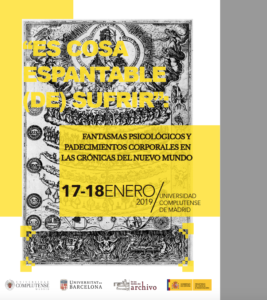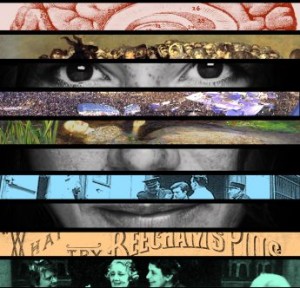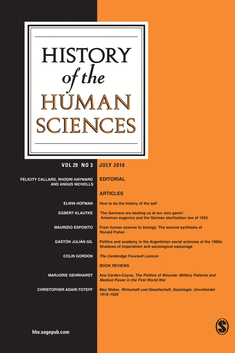University of York
Thursday 7th & Friday 8th April 2016
This two-day meeting, hosted jointly by Dr Chris Renwick and History of the Human Sciences, gathers together established scholars and early-career researchers to consider changes wrought in the broad interdisciplinary field of the history of the human sciences by new developments in the medical humanities, biological sciences, and literary/cultural theory. Marking the end of James Good’s 15-year tenure as HHS editor and the beginning of a new editorial team, comprising Dr Felicity Callard, Dr Rhodri Hayward, and Dr Angus Nicholls, the meeting will survey the field’s development since the foundation of HHS almost 20 years ago, and offer provocations – from various disciplinary perspectives – about the directions that it might take in the future.
Speakers include Roger Smith, Steve Fuller, Peter Mandler, Marianne Sommer, Amanda Rees, Michael Finn, Elizabeth Toon, Jessica Hendy, Maurizio Meloni, Des Fitzgerald, Alexandra Bacopoulos Viau, and Jonna Brenninkmeijer.
There will be four intensive sessions:
- The Problem of the Archive: biological data, digital media, material culture, and their impact upon the archive and human nature;
- The Problem of the Human: how the neurosciences are challenging conventional approaches to history;
- The Problem of the Social: How do models of ‘the social’ in the life sciences challenge those in the social sciences and humanities?
- Practice in the Human Sciences: new methods and approaches in medical humanities and science studies.
These sessions will be followed by a roundtable in which the outgoing and incoming History of the Human Sciences editors, plus speakers from the conference, discuss the state of the field and its future.
In keeping with the field’s history and the future challenges that will be discussed, the conference organisers wish to encourage scholars from a wide range disciplinary backgrounds to participate. Attendance is free but places are limited.
As part of the conference organisers’ commitment to encouraging discussion about the future of the field, six bursaries covering the costs of attending the conference are available for postgraduate students. More information about how to apply for one of these bursaries is available on the postgraduate bursaries page of the conference website.
Further information about the event is available on the conference website.


